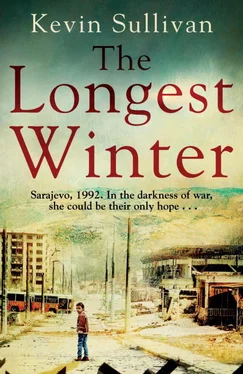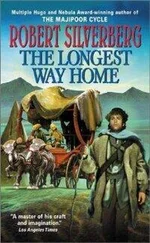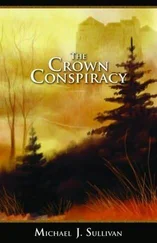There was a moment of silence and then Alija nodded and spoke, almost diffidently, to the soldier.
‘You can go,’ Alija told Brad.
Outside on the stairs Brad realised that he hadn’t offered the least expression of commiseration or condolence.
He left the building and sprinted to the corner, turning sharply and moving away from the river. When he reached the main street in front of the presidency he saw a small crowd on the main steps of the building. The General stood in the middle of a huddle of reporters.
The story was out.
But Brad had already sent his initial report. He knew he’d beaten everyone. He was sure he’d been first.
‘It is a tragedy,’ the General was saying. ‘No one can deny that, but we must ensure that this does not lead to further tragedy. We appeal for calm.’
‘Is this a failure on the part of your troops?’ Brad asked.
The General shrugged, a short, sharp rise and fall of his epaulettes, and looked down at the ground. His face screwed up a little, as it did when he was exasperated.
‘I will make a full statement tonight at ten o’clock,’ he said. ‘Please excuse me.’
He turned and walked up the steps into the presidency building.
There was a general rush towards cars. Brad was pleased. He’d already beaten them.
He followed the pack back to the Holiday Inn. They made a small convoy of armoured vehicles, Brad at the back more vulnerable in his soft-covered car.
He was soon left behind. The four-wheel drives moved faster. When he reached the basement car park his competitors had already left their vehicles and hurried upstairs.
As Brad climbed to his room he met Michael Baring. Baring was descending through the ice-cold darkness, shining an expensive miniature torch – with a very narrow body and a very concentrated beam – in front of him. He shone the torch on Brad and said, ‘Brad, what’s up?’
Baring spoke in a chummy way. Brad sensed his concern. Something was on and Baring didn’t know what it was. ‘How do you mean?’
‘Saw people leave the building at speed.’
Brad told him what had happened on the Airport Road.
‘When?’ Baring snapped.
Brad related what he knew and then continued climbing the stairs.
‘I see,’ Baring remarked.
‘The General’s giving a press conference at the Delegates’ Club at ten,’ Brad added.
The more she thought about it, the more Milena regretted agreeing to speak to Brad. She didn’t think that what she had to say would be interesting, at least not to someone who made a living the way Brad did, covering wars.
And in any case she wasn’t sure she could put her own memories into words. She wasn’t even sure that was something that she wanted to do. What was dear to her was in her heart: it couldn’t just be brought out and shown to the whole world. Yet she thought about her past more and more now.
When Milena was twenty-two she visited Sarajevo with her friends Jasmina and Mira. The world was there, for the Olympic Games. Jasmina had got hold of tickets and Mira had an aunt and uncle who lived in Čengić Vila and who had agreed to put the three girls up.
They left Foča at six o’clock in the morning. Immediately before departure they began to bicker over whether to take their bags into the bus or stow them with the luggage. Jasmina believed they would be stolen if they put them with the rest of the luggage. ‘There are professionals that live off travellers,’ she said. ‘They steal people’s bags when the bus stops at really small places.’
‘We’re not going to the South Pole!’ Milena said. ‘It’s only an hour and a half!’
The driver shouted at them. ‘Are you girls staying there? Or are we all going to get on the fucking bus?’
He looked like somebody’s uncle. He was short and fat and he wore a big blue anorak. They took their bags onto the bus. The inside smelled of frost and cigarettes and metal. Mira and Jasmina slept. Milena listened to the sound of tyres humming on asphalt and watched the dawn, dull and distant over woods. She felt the chill window on her forehead.
When Milena was very small, her mother took her to the coast. They travelled for a whole day, on a bus, among strangers. Milena wanted to see the sea. She knew that it was blue and big and beautiful. Her mother said they would play on the sand and they would eat ice cream.
It was a long day’s journey. In the seat in front of them were two men with oily hair. They were thin-faced and preening, like the men who came to the coffee shop where Milena’s mother worked.
Milena never knew her father. She imagined him like one of those thin-faced men. Her mother remarked once, of a handsome man with a moustache, that he was ‘like your daddy’. Milena could tell her mother hadn’t meant to say that. Her father didn’t come into ordinary conversation. She knew that he’d gone away because he couldn’t get a job, and he hadn’t come back. That’s what her mother said.
Her mother said her father wasn’t a bad man, which was a strange thing to say, Milena thought. Why would she say that her father wasn’t a bad man, unless other people thought he was a bad man? Sometimes her mother had boyfriends. Milena didn’t mind. She thought most of them would be OK as fathers. She imagined her real father, though. She imagined how it would feel to be with him. She imagined how it would feel if her father lifted her up and held her very close, like her mother did sometimes. It was how she imagined the sea would make her feel. She imagined somehow that her father would dress in stylish clothes.
That year they spent weeks and weeks on the coast, but Milena only saw the sea from a distance, when they descended from the mountains and when they took the same road back to Foča. They stayed in a room above the restaurant where Milena’s mother had a job for the season. It smelled of disinfectant. They sat on the bed when they arrived. It felt springy.
‘When are we going to the beach?’ Milena asked.
‘When I have time off.’
Nothing her mother promised ever happened exactly as she said it would. Sometimes nothing happened at all. They stayed for a whole summer but they never went to the beach. Her mother worked every day from early in the morning until late at night.
When Milena complained, her mother told her she hated working in the restaurant but they needed to earn money otherwise they wouldn’t eat. At night Milena lay in the bed, waiting for her mother. Her mother would come in, undress and lie down beside Milena. She remembered the shiny touch of her mother’s petticoat and the smell of perfume and the weight of her mother’s body changing the contour of the bed so that Milena rolled close and felt the touch of her mother’s fingers running through her hair. Sometimes her mother fell asleep straight away. Other times they lay awake and talked. Milena wished the two of them could stay that way forever.
And when they left at the end of the summer and took the bus to Foča, Milena looked back and saw the sea, far away behind them. Her mother said they couldn’t go to the beach on their last day because the bus tickets had been bought and there was nothing she could do. They had to get on the bus and leave. Milena knew her mother wanted to take her to the beach and sit on the sand and help her make sandcastles. She knew her mother wanted to go down to the water with her and splash in the sea and swim and look up at the sun. She knew that these things would have happened if her mother could have made them happen. But her mother wasn’t lucky, or clever, or strong.
Milena imagined the sea. She imagined afternoons at the beach with her mum and dad. One day she would live in afternoons like that.
Читать дальше












